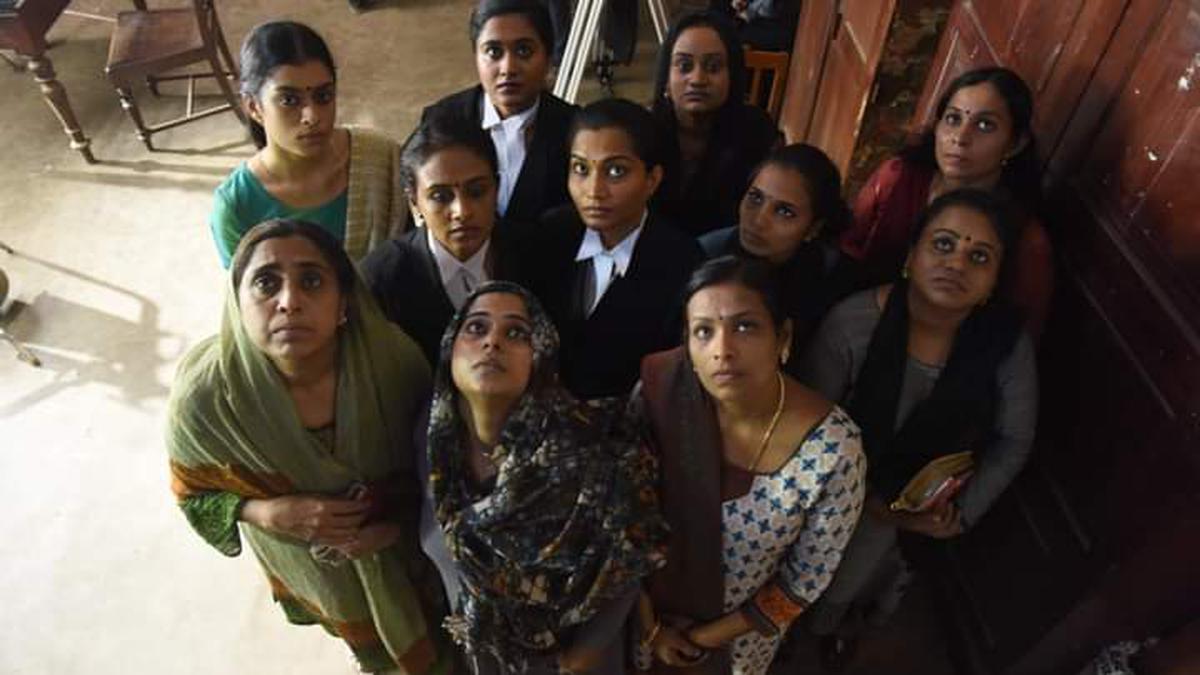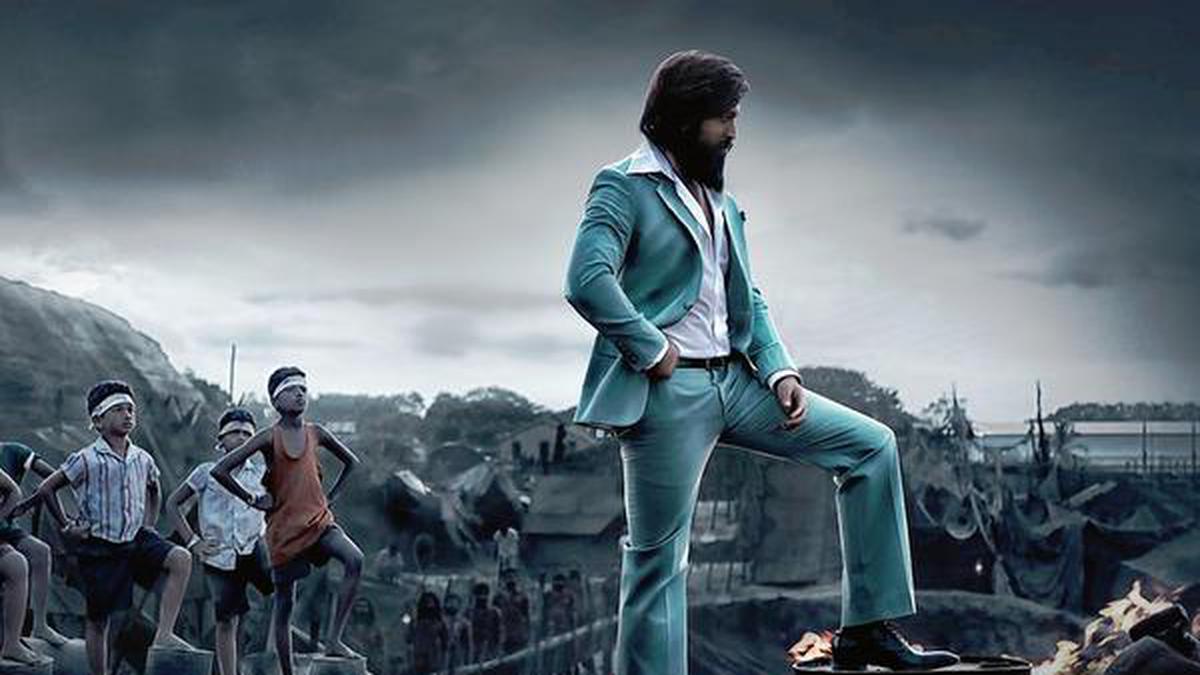Divorce continues to be a pejorative word in India. Divorce, Mini IG’s feature film, delves into the circumstances and multiple consequences of a legal dissolution of a marriage, through the story of six couples from different socio-economic backgrounds.
The narrative explores adultery, marital abuse, ego hassles, financial issues and the societal pressure that break marriages and fray relationships. Mini asserts it is not a one-sided story. “The film touches upon how children, families and friends — not just the man and the woman in question— get affected when a marriage breaks down.”
Film director and theatreperson Mini IG
| Photo Credit:
SPECIAL ARRANGEMENT
One of the first two films financed by the Kerala State Film Development Corporation under the Kerala State government’s Women Directors’ Cinema Project, to encourage more women to write and direct their own stories, Divorce has been scripted and directed by Mini.
Straddling theatre and cinema
Mini has been working in theatre and visual media for the last 20 years.
A graduate of the National School of Drama, Mini did her post-graduation from Central Saint Martins, London, and is a recipient of the Charles Wallace award.
Mini has written several plays such as The Room, Pancha Bhootham, Aruna, We Are Sorry, Zinda Laash and so on.
She has acted in several plays and films and also directed plays.
Although Mini, a Kozhikode-based cinephile and theatre activist, had several scripts with her, she decided to develop a story idea that focussed on women.
Mini opined that in a patriarchal structure, it becomes extremely difficult for a single woman or a woman without the crutch of a male support — be it a widow, a single woman or a divorcee — to live life on her terms, as she is constantly judged by society. “It is as if the colour has seeped out of their lives and their lives and choices are constantly being judged by society. Their identity itself seems to have been swept away sans the male partner. Many a time, our society is still not ready to accept a woman as an individual.”
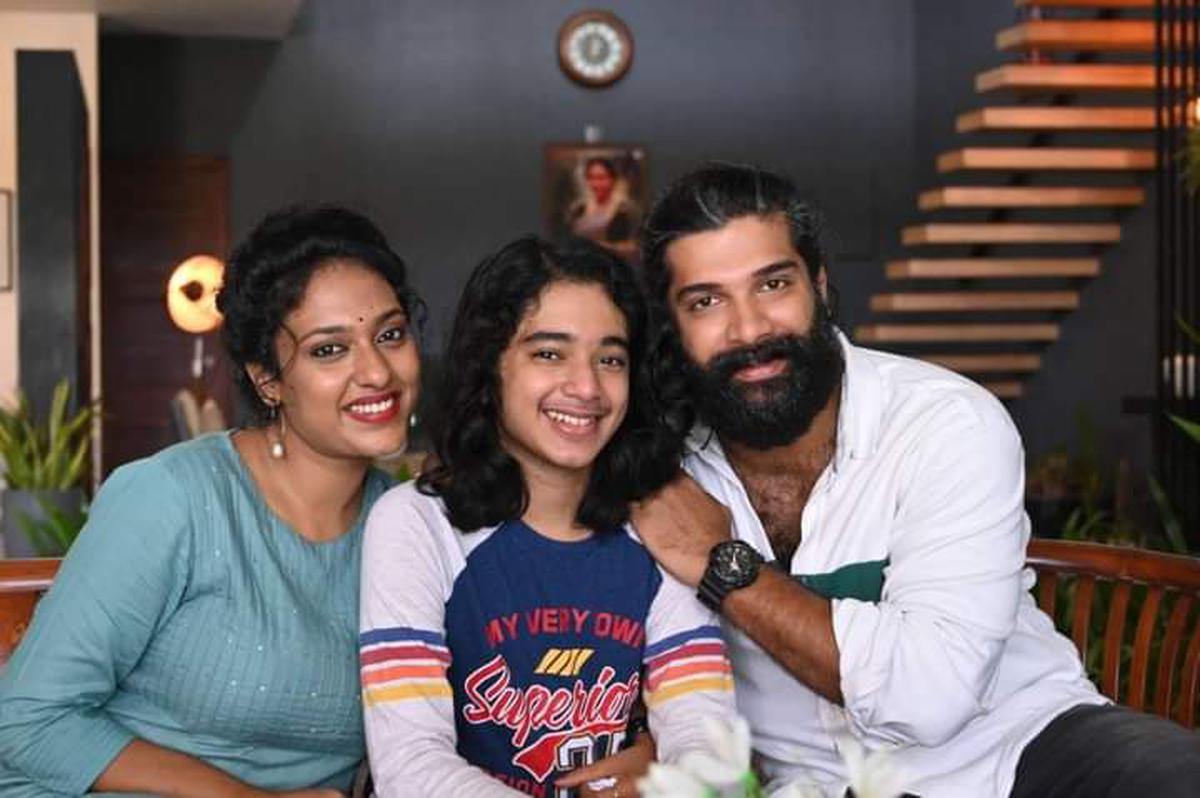
A still from Malayalam film Divorce, directed by Mini IG
| Photo Credit:
SPECIAL ARRANGEMENT
Mini asserts that the situation has to change by taking cognisance of the intrusive habit of judging people. “No matter how much we claim to have changed, even in Kerala, there is a patriarchal attitude that sees women through the filters of patriarchy.”
According to Mini, Divorce does not indulge in a blame game or examines the issue from the perspective of one gender alone. She says her film discusses how lives are put on hold when the court procedures goes on. “The narratives of the six women reflects reality,” says Mini.
For instance Anju, a banker, and Sainaba, a homemaker, meet in the family court where they wait for hours for the hearing of their cases. Eventually, they become friends and, at one point of time when Anju is forced to leave her home because of her divorce, it is Sainabha who offers her a home.
Amlendu essays Anandi, an actor married to a director. They work together but success affects them in different ways and when he hits a bad patch, it creates an imbalance that creates fissures in the relationship. An advocate couple face issues of a different nature.
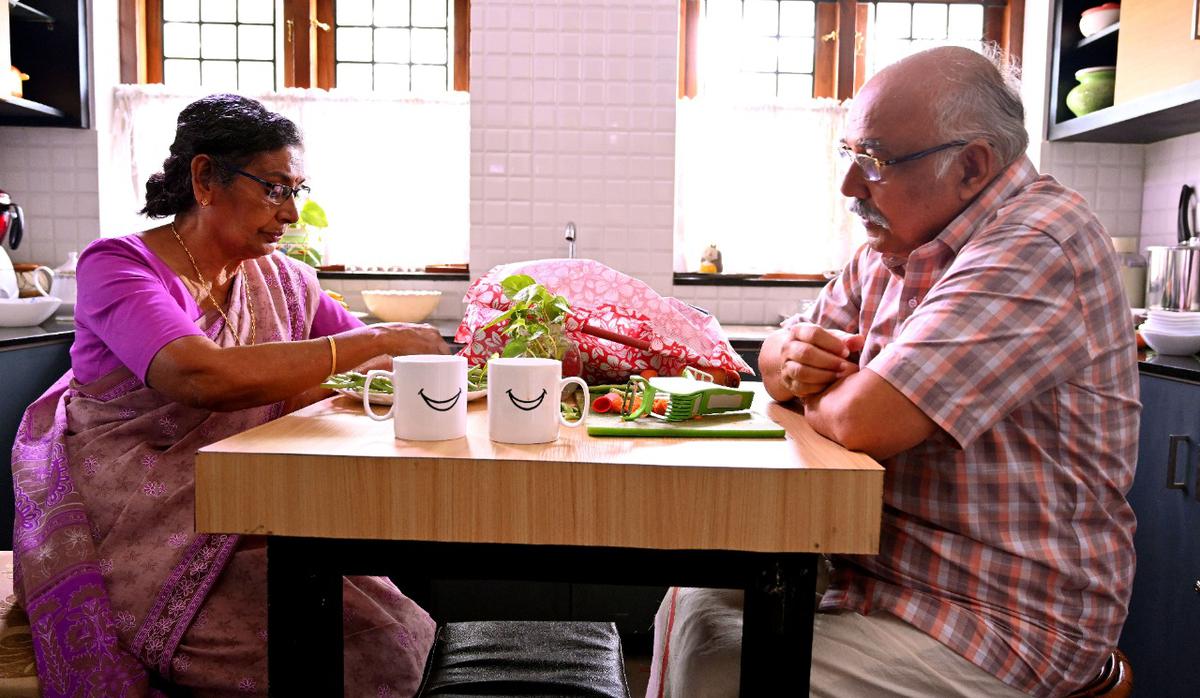
KPAC Leela and P Sreekumar in a still from Malayalam film Divorce, directed by Mini IG.
| Photo Credit:
SPECIAL ARRANGEMENT
Another interesting character is a grandmother. A former headmistress, she is held up as a woman to emulate. However, she looks back at her own life and wonders when she had the freedom to follow her heart, learn music or plant a garden without her husband’s permission. In the autumn of her life, she decides to go for a legal separation.
“But the husband realises how he was suffocating her with his overbearing, protective attitude and tries to change and the wife decides to give him a chance. Each character has her own distinctive emotional arc in the film.”
Only one of the woman’s experiences is based on a real-life story that Mini heard from a friend. she created the other stories on the basis of what she learned from her legal adviser and Mini’s friends who work with women seeking counselling, shelter and legal advice.
P Sreekumar, KPAC Leela, Santhosh Keezhattur, Shibla Farah, Akhila Nath, Amalendu, Chandunath, Manikuttan, Arunamshu and Ishita Sudheep play the main characters.
Shot completely in Thiruvananthapuram, Mini’s shooting was hobbled due to the pandemic-caused restrictions in March 2020. Schedules were upset, shooting locations changed and, at times, even the storyline.
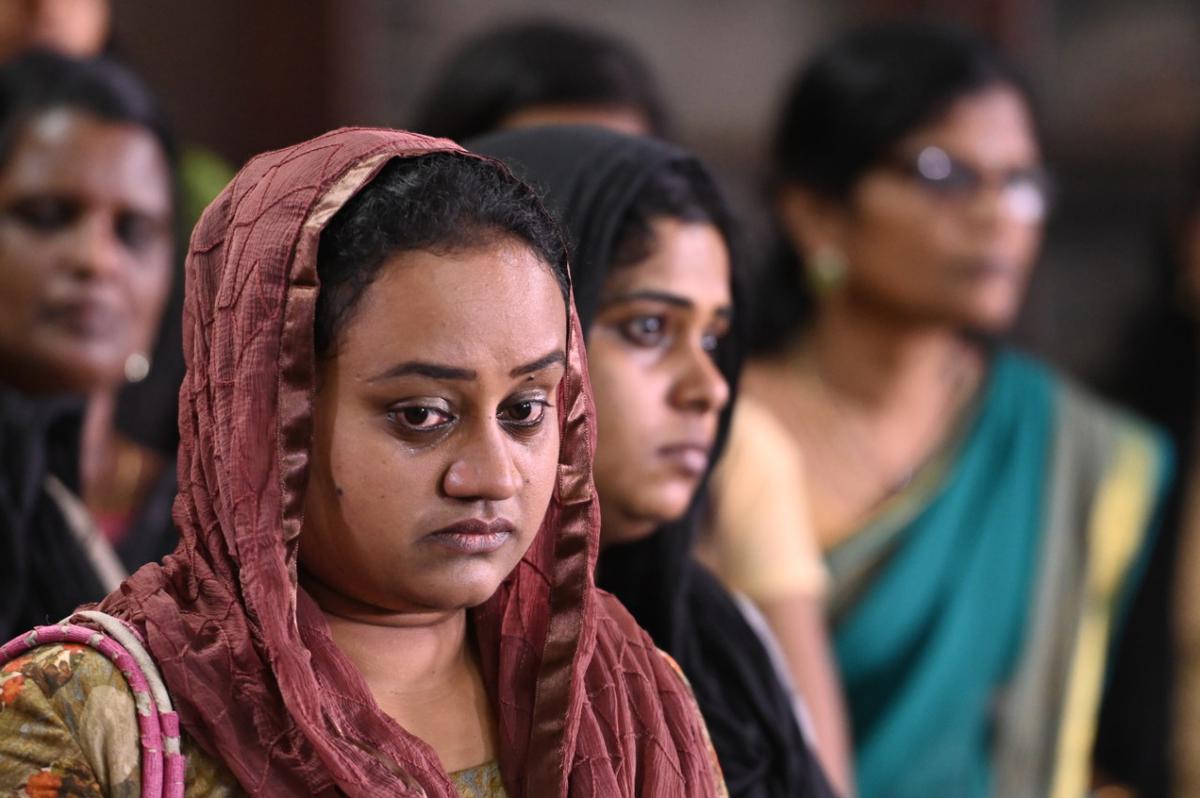
A still from Malayalam film Divorce, directed by Mini IG.
| Photo Credit:
SPECIAL ARRANGEMENT
“At one point we debated if should just abandon the project or carry on. But my crew and cast stood with me and we decided to go ahead. We were told that many scenes had to be picturised at the government-owned Chitranjali Studio. So some scenes had to be rewritten. But we did it.”
In spite of such challenges and budgetary constraints, Mini’s film was completed in 2021.
As the film reaches cinemas on February 24, Mini explains: “Over the years, I have done the same play at several venues and each time, the play remained relevant and fresh. But that’s not the case with cinema. Films can become dated, especially those shot during the pandemic as most of the movies were shot indoors. So, when the film was shot is important. The locations we had chosen have been seen in many movies that came later. I feel a film has to reach cinemas as soon as the work on it is completed. Whatever the problems, I am happy that Divorce is releasing in cinemas.”


